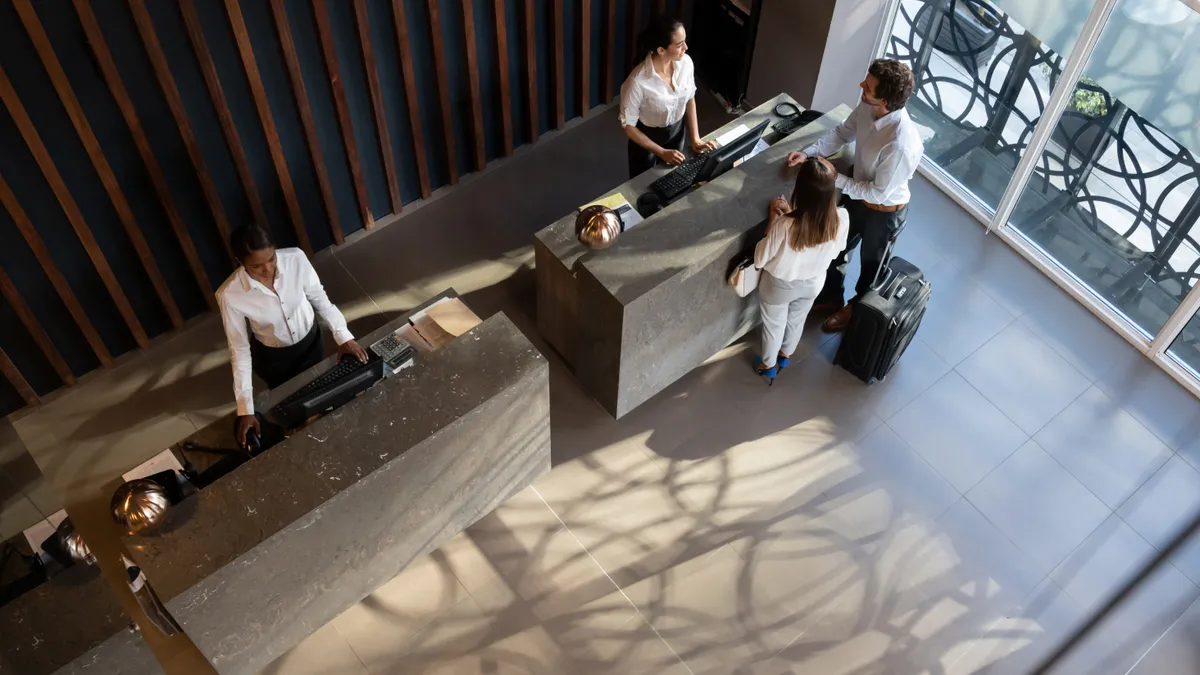In the 2030s, hotels will prioritize sustainability, talent retention, unique experiences and convenient and customized experiences for guests, according to “The hotel of the future,” a report by leaders in McKinsey & Company’s Travel, Logistics & Infrastructure Practice.
In the report, McKinsey travel experts Margaux Constantin, Vik Krishnan, Matteo Pacca, Steve Saxon and Caroline Tufft discussed convenience and customization in future hotels, shifting traveler behaviors, sustainability imperatives and talent retention.
“The big change that I anticipate, more than anything, in hotels in the future is that every single pain point will be removed,” said Tufft, a senior partner in McKinsey’s London office. That means stay options will be more flexible, and guests won’t have to wait until later in the day to check in.
Using data, hotels will be able to know why a guest is there as soon as they walk in, offer check-in and room assignments entirely by mobile phone and offer visitors highly customized experiences.
“If you think about it, we use data in hospitality very, very little. We can customize emails, we can customize promotions—but the customization of experience, for now, is a rarity,” said Pacca, a senior partner in Paris. “I believe we’re going to see much more of that going forward: the intensity of the light in your room, the coffee you will find there, the installations in the bathroom, the shower, and so on.”
Steve Saxon, a senior partner in Shenzhen, China, echoed the idea of a smart-tech enabled guest room. “The room itself can have automation. The furniture shifts around and can be converted to a variety of uses. In the day, it can be for meetings. It can be for parties. Then, at night, the room can transform into a great place to sleep.”
That room experience could begin long before the actual stay.
Pacca noted the role of emerging technologies such as virtual reality and 3D smart glasses. “I think we’ll see opportunities to test your room before you get there, in ways that are much more immersive than they are today,” he said.
Caring for the planet and people
But guests will demand more from hotels than comfortable, customized stays.
Vik Krishnan, a senior partner in the Bay Area, said he expects “the imperative around sustainability to only increase.”
A great deal of that directive will come from guests, who “will look for guarantees that they are in places that respect the environment,” said Pacca, adding that “they will be more demanding, even before regulation steps in.”
Saxon noted the largest source of energy usage in hotels is the HVAC system. “Hotel rooms will have sensors to know: Is there a person in the room?” he said. “And if so, what is the person doing? Therefore, what does that mean we need to do in terms of temperature control?” (Some hotels, such as the Beverly Hilton and Waldorf-Astoria, have already begun using technology to mitigate HVAC usage.)
The hotel of the future will prioritize taking care of both the environment and its employees.
Hotel jobs are “very hard” and “not hyper-desirable,” Krishnan said. Future hotels will need to be “responsible employers” in order to keep employees happy, something that’s already a struggle in 2023, as the U.S. faces both a hospitality labor shortage and the largest multihotel strike in Southern California’s history.
No matter how advanced hotel tech becomes in the next decade, however, “most of the [hospitality] experience is delivered by people,” Pacca said, “and people can only deliver a fantastic experience if they’re happy, relaxed, well paid and well trained.
“So, winning will also be about the capability of attracting and retaining the best talent to give the best experience to guests,” he added.








